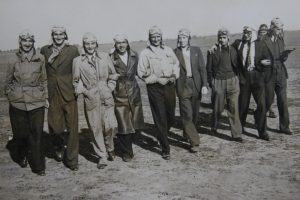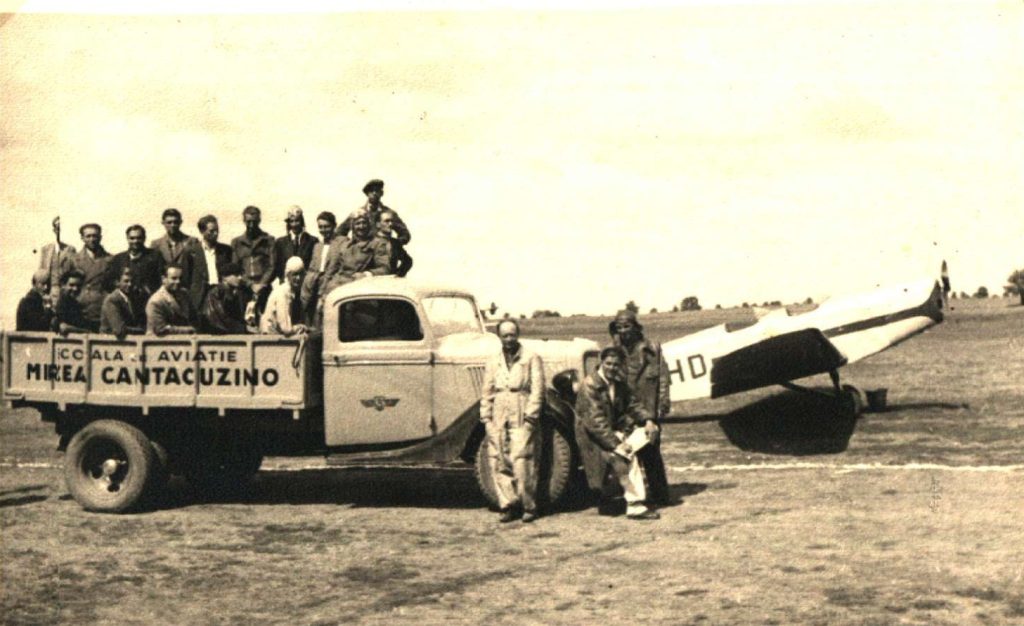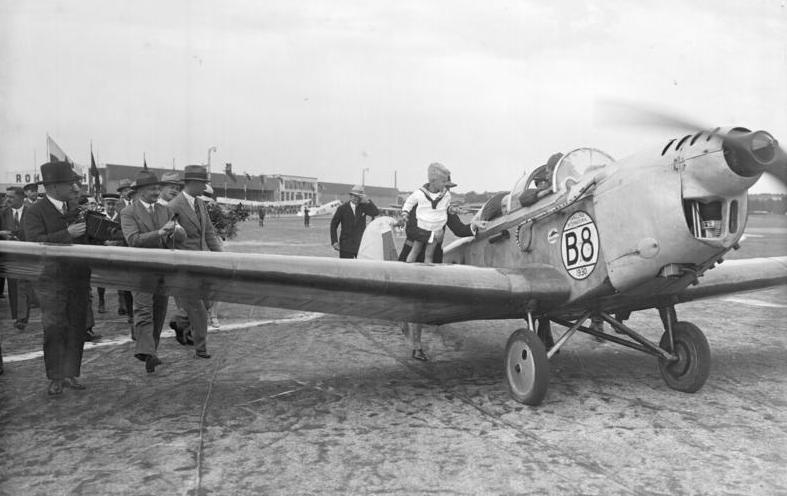[tabs]
[tab title=”Brief”]
Klemm Kl 25
Klemm L.25, later Klemm Kl 25 was a successful German light leisure, sports and training monoplane aircraft, developed in 1928.
About Klemm Kl 25 – Source Wikipedia
Role: Training plane
Manufacturer: Klemm
First flight: 1928
Specifications (L 25 d VII R)
General characteristics
- Length: 7.5 m (24 ft 7 in)
- Wingspan: 13.0 m (42 ft 8 in)
- Height: 2.05 m (6 ft 9 in)
- Wing area: 20.0 m² (215 sq ft)
- Empty weight: 420 kg (926 lb)
- Max. takeoff weight: 720 kg (1,587 lb)
Performance
- Maximum speed: 160 km/h (99 mph, 86 kn)
- Range: 650 km (404 mi)
- Service ceiling: 4,800 m (15,748 ft)
[/tab]
[tab title=”Detailed information”]
Klemm Kl 25
Klemm L.25, later Klemm Kl 25 was a successful German light leisure, sports and training monoplane aircraft, developed in 1928.
Design and construction
With low cantilever wing, fixed landing gear, and two open cockpits,[1] the aircraft was developed by Hanns Klemm who used his previous design, the Klemm Kl 20, as a starting point. It first flew on a 20 hp (15 kW) Mercedes engine.[1] About thirty different versions of the Kl 25 were made, and these were equipped with engines ranging from 32 to 70 kW (43 to 94 hp). The fuselage was covered with plywood.
Depending on the model, the aircraft’s weight was 620 to 720 kg (1,367 to 1,587 lb), and it had a 10.5 to 13 m (34 to 43 ft) wingspan. Take-off was achieved at only 50 km/h (31 mph) and the maximum speed was between 150 to 160 km/h (93 to 99 mph).
In relation to similar aircraft of the time, assembly was very easy, and this made it a very popular aircraft. According to the sales brochures, only 25% of the engine’s power was needed to keep the aircraft flying, compared to biplanes of the period, which required 50% engine power.
About 600 were built in Germany between 1929 and 1936,[1] serving with various flight training organizations, on either wheels, skis, or floats.[1] Fifteen were sold to Britain before the Second World War,[1] being fitted with a variety of domestic engines,[1] while twenty-eight more were built by British Klemm Aeroplane Company as the B.A. Swallow.[1] Production in the United States was carried out by the Aeromarine-Klemm Company which enjoyed moderate success as well as developing models for the American market in isolation from the parent company, with about 120 built of all models.
Variants
NB, list not complete
Germany
- L 25 a: Built between 1927 and 1929, equipped with a Daimler F 7502 engine (22 PS)
- L 25 I, Ia and IW: Built between 1928 and 1929, equipped with a Salmson AD.9 engine (45 PS)
- L 25 b: Built in 1931, equipped with a 22 PS Daimler engine
- L 25 b VII: Built in 1931, equipped with a Hirth HM 60 engine (60 PS)
- L 25 d II: Built in 1933, equipped with a Siemens Sh 13 a engine (88 PS)
- L 25 d VII: Equipped with a Hirth HM 60 R engine (80 PS)
- L 25 IVa: Equipped with Armstrong Siddeley Genet engine
- L 25E or Ve: pecial competition variant (E for Europa Rundflug 1930), with a closed canopy, smaller span, equipped with Argus As 8 straight engine (103 PS / 75.7 kW)
- VL 25 Va: VL 25 Va: Three-seater variant, with a closed canopy, equipped with Argus As 8 straight engine (103 PS / 75.7 kW)
United Kingdom
- British Klemm Aeroplane Company B.K. Swallow
- British Aircraft Manufacturing Co. B.A. Swallow II
United States
- Aeromarine-Klemm AKL-25
- Aeromarine-Klemm AKL-26
- Aeromarine-Klemm AKL-27
- Aeromarine-Klemm AKL-60
- Aeromarine-Klemm AKL-70
- Aeromarine-Klemm Model 70 Trainer
[/tab]
[tab title=”Gallery”]
Klemm Kl 25
Klemm L.25, later Klemm Kl 25 was a successful German light leisure, sports and training monoplane aircraft, developed in 1928.
[nggallery id=25][/tab]
[tab title=”Pilots”]
Klemm Kl 25
Klemm L.25, later Klemm Kl 25 was a successful German light leisure, sports and training monoplane aircraft, developed in 1928.
[recent_posts count=”100″ cat=”50″][/tab]
[/tabs]






